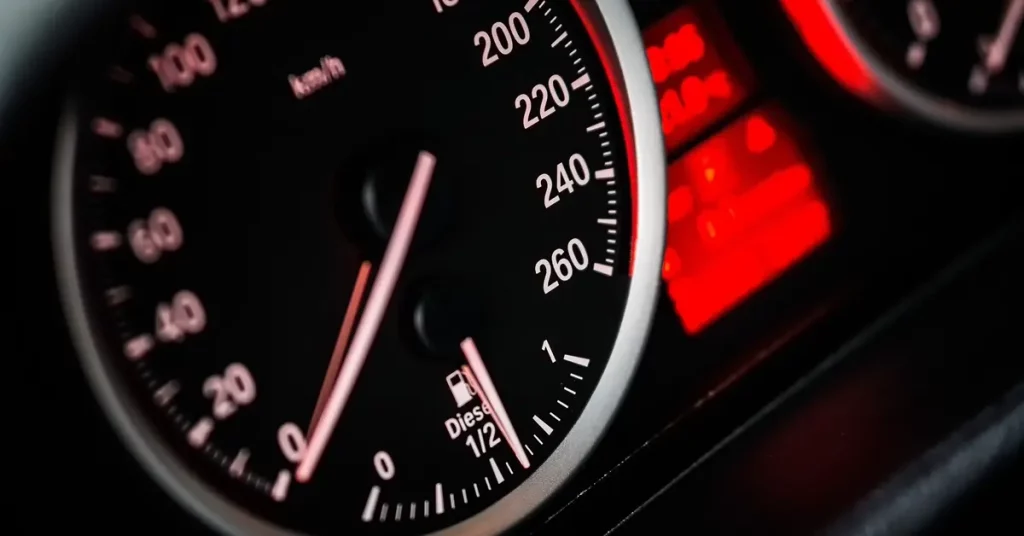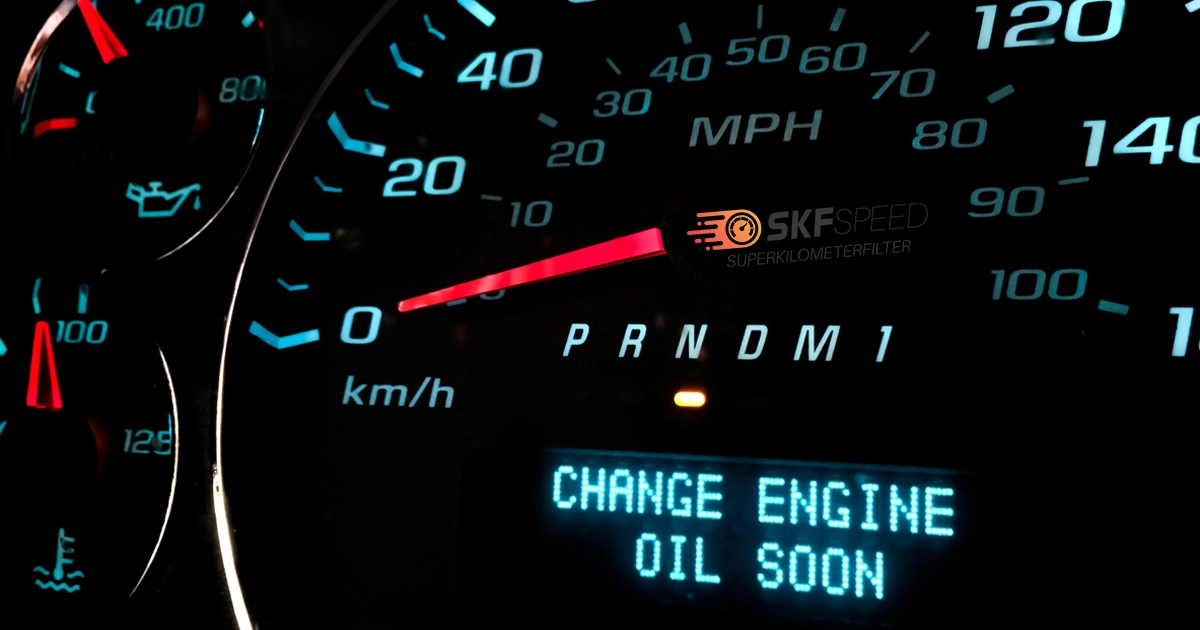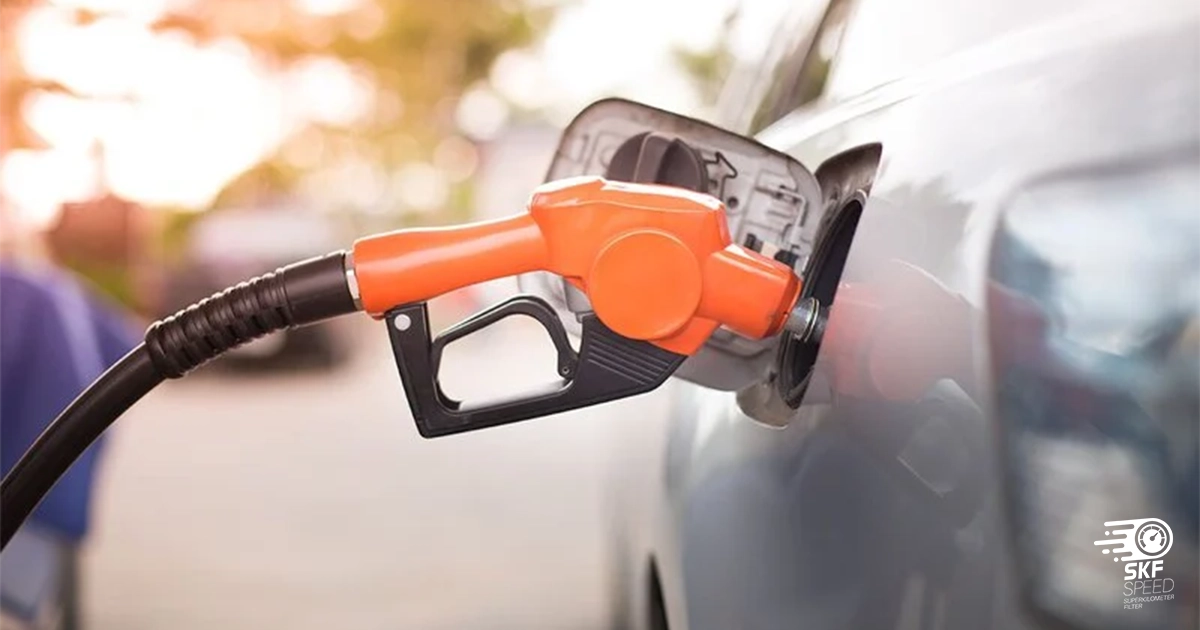
No, replacing your vehicle’s engine doesn’t change or reset its mileage. If you get a new engine, does the mileage change? – This is a very popular question asked among those who are going to replace engines. Engine replacement is an important decision. When you are going to do it, you should consider every detail. To put it simply, replacing the engine does not affect mileage. The odometer is not connected to the engine. It is not a comprehensive answer to the question. Let’s dig deeper and discuss everything connected to changing the motor. For instance, do you know what is necessary before this process? Does replacing the engine mean a lot for a car? Is it as beneficial as you expect? What are the most common problems people stumble upon? Does mileage information change after swapping? Those are questions that may come to mind when considering an engine change.
Let’s start and discuss all the above-mentioned topics one by one and answer the main question broadly: if you replace an engine does the mileage change?
As long as the engine is the heart of the automobile, it takes a huge effort to make decisions about it. You need to calculate the risks and benefits and determine their necessity. The first and foremost thing is to search for a professional mechanic who does the task flawlessly. It’s not just about removing the old one and installing the new one.
If you consider your engine old because it has more than 10,000 miles, you should know that the traveled distance also affects other parts. Those parts experience wear and tear in the same way the engine does. If you ignore the necessity of paying attention to them, motor changing doesn’t make sense at all. You will encounter unforeseen problems when they break down due to poor maintenance. Parts that also need closer attention are the following: air conditioner system, cooling, charging, starting systems, transmission, and power steering. It is highly recommended to check and replace those parts if necessary. Preparing for replacement also includes installing particular things in advance.
So, if you replace a car engine, does the mileage change? – No, it is not, but there are integral parts of the vehicle that experience wear and tear due to the distance traveled. That’s why we should pay attention to them.
Additionally, you should decide what your optimal option is. Those alternatives are the following: pre-owned engines, rebuilt engines, or remanufactured.
In the following paragraph, we will discuss the value and benefits of swapping. Is it as worthwhile as you think?
When your engine breaks down or has trouble working properly, the first thing that comes to your mind is taking it to a repair shop and finding a solution with the mechanic. The most desirable outcome is that it just needs maintenance services. It is not a serious issue at all. The same happens when you need to replace systems like belts and hoses. A blown engine is a worst-case scenario because you have to determine whether it is worth repairing or giving up the car altogether. Swapping is cost-effective, but it mostly depends on your personal choice and values, as well as your budget.
When considering cost-effectiveness, changing the engine is the best decision if you know you will receive insurance and warranty coverage. Another consideration is whether the vehicle holds sentimental value for you. Hence, you don’t want to let it go.
Therefore, you must summarize all risks and values to make a final decision. After you decide and start the process, then you can become interested in: If you get a new engine, does the mileage change?
Let’s take a look at a scenario where Mark, a 38-year-old architect living in Denver. He has had his 2011 Toyota 4Runner since his early career days. Over the years, the SUV has been through countless site visits, mountain road trips, and daily commutes. It finally crossed the 190,000-mile mark.
Even though the engine started acting up, the rest of the vehicle was still in great shape. Instead of spending over $30,000 on a new car, Mark went with a remanufactured engine, spending just under $6,000. The mileage on his odometer? Still 190,000 miles—because mileage doesn’t reset with an engine swap.
Mark also took the opportunity to replace a few aging components—such as belts and sensors—to avoid future headaches. Now, his 4Runner runs like a dream again, and he’s back to juggling client meetings, site visits, and weekend hikes without missing a beat—or taking on a car loan.

An engine change is not the end of the story. Sometimes it’s just a beginning. Sometimes you should be ready for some problems you may encounter. However, if you identify the problem at an early stage and take it to a mechanic, the issue will likely disappear easily. If you pay attention to the particular signs, you avoid permanent damage. I inform you in advance that it doesn’t mess with the odometer reading. If you replace an engine, does the mileage change? – No.
When you hear unusual sounds while driving, it’s likely that something is wrong with the engine. There is a chance that bearings or seals are broken. Screeching or whining sounds indicate that a worn-out serpentine belt, a failing power steering pump, and a malfunctioning AC compressor. Tapping and clicking sounds mean that you should check the oil level.
The smoke that comes out is helpful in determining the issues. It’s not always a reason for worry. Clear smoke means that everything is okay. But any other color can be a sign of damage. This usually means that if you do not take urgent measures, you will end up with serious damage to the engine. Black exhaust generally means that vehicles are using too much gasoline. The reason is clogged air filters. Hence, fuel economy is impossible.
Most modern vehicles can run smoothly for about 150,000 to 200,000 miles before they start experiencing major issues. With regular maintenance, reaching 150,000 miles is pretty standard, even without putting in a significant amount of extra effort.
When you notice that the check engine light comes on after replacing the engine, you should know that there is an issue. The check engine light is a signal that the onboard diagnostics system (or OBD II) has detected a malfunction in the vehicle’s emissions, ignition, fuel, or exhaust systems. This can be caused by a faulty spark plug, a fuel cap not being installed properly, a damaged sensor for airflow or oxygen flow, a faulty engine coil or dual injectors, or a broken thermostat.
Keeping a close eye on the above-mentioned things is beneficial for identifying and eradicating all issues at an early stage. Therefore, it would be beneficial to consider everything. As you can see, replacing the engine does not lead to mileage issues. The answer to the question: If you replace a car engine does the mileage change? – is always negative. Let’s see what happens to the odometer reading in detail.
No, once you change the engine, it will not affect the mileage; however, there are other details to consider. It’s highly likely that when you decide to change the engine, the odometer reading will reach hundreds of thousands of miles. Naturally, you may think that installing a brand-new Engine may cause the resetting of the odometer. You can find the answer to the question” If you get a new engine does the mileage change?” easily. All you need is elementary automotive knowledge.
The odometer works by counting wheel rotations and assuming that the distance traveled is the number of wheel rotations multiplied by the tire circumference, which is the standard tire diameter times pi (3.1416). The most common way to reset it is mostly illegal, known as odometer fraud.
 Mileage data is usually stored in the instrument cluster, sometimes in ECU, or the body control module (BMC). However, depending on the cars, it might slightly vary. When the cluster is faulty, all you need to do is repair it. Once it is repaired, all information will be available as usual. It is better to write down the odometer reading before removing the cluster, as sometimes you may get a false reading and need to correct it. You already know where the data is stored, and therefore, you have an answer to the question: if you replace an engine, does the mileage change?
Mileage data is usually stored in the instrument cluster, sometimes in ECU, or the body control module (BMC). However, depending on the cars, it might slightly vary. When the cluster is faulty, all you need to do is repair it. Once it is repaired, all information will be available as usual. It is better to write down the odometer reading before removing the cluster, as sometimes you may get a false reading and need to correct it. You already know where the data is stored, and therefore, you have an answer to the question: if you replace an engine, does the mileage change?There are certain cases when correcting the odometer is an inevitable necessity. For example, when the instrument cluster is at fault, or you have come across an electrical fault. In short, when you know for sure that the odometer reading is not genuine for some reason. To put it simply, it should be legal and documented accordingly. You may need a legitimate reason for the correction, which is why you are not sure. If you replace a car engine, does the mileage change? – As we already mentioned – Absolutely not.
On the other hand, the disconnection, resetting, or alteration of a vehicle’s odometer with the intent to change the number of miles indicated is a criminal offense. It typically occurs when dishonest sellers attempt to deceive potential buyers. There are various correction tools on the market, which serve as deterrents for wrongdoers.
The most desirable tool for correcting data is the Mileage blocker. It is an extraordinary device for ethical purposes. Its initial function is to halt the mileage recording process unconditionally from all control units. It is on sale on our website. We recommend using it only for testing purposes in a controlled environment. We created the module which is very sophisticated with premium quality parts from Germany. Hence, it is the most reliable and desirable stopper that you can come across on the market. We offer proper installation and technical support you can visit our costumer center and get answers to all your questions.
So, you already get a comprehensive answer to the answer: If you get a new engine does the mileage change? Additionally, you learn further information about engine maintenance and repair. An engine swap is not a bad idea. You just need to determine how beneficial it can be for you. Proper service and maintenance always matter for every component to last longer. If you’re concerned about odometer data when testing performance, you know where to find the perfect device for that purpose.




Here you will find all the details about our company
Here you will find shipping and return related information
Here you will find information on all technical questions
Here you will find helpful information about installation